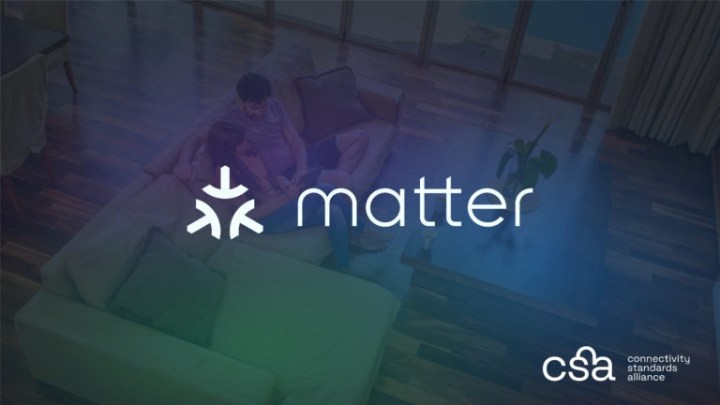Smart home gadgets are continuing to gain popularity with homeowners. From robot vacuums and smart speakers to smart thermostats and smart light bulbs, there’s a smart home product for just about every need. And while users typically have to ensure their prospective purchases work with their current setup (such as Apple HomeKit or Google Home), Matter is looking to make that a thing of the past.
The interoperability platform has made big strides over the past few months — but where is it heading for the rest of 2023? Since CES in January, there have been mixed signals surrounding Matter. From new product launches to loss of support from Belkin, here’s a look at what’s happened with Matter so far in 2023 and where it might end up by December.
Matter gains traction in 2023

The tail end of 2022 was filled with Matter-related news, as both Google and Amazon added Matter support to their lineup of smart speakers and smart displays. That trend continued into early 2023, with the revived HomePod offering native Matter support. That means regardless of which of the “big three” you choose to use in your home, you’ll have access to the interoperability platform.
Seeing as Matter only officially became available in October 2022, that’s an impressive feat. Things look to continue on that same promising trajectory throughout 2023. Not only are more manufacturers jumping on board (such as Nanoleaf), but we’ll also see new device categories added in the future — such as robot vacuums, security cameras, and even home appliances. For now, Matter is only designed to work with bridges, controllers, door locks, HVAC controls, lighting, and a few other assorted categories.
Once all these additional categories are supported, don’t be surprised if a massive wave of announcements breaks at once, as manufacturers rush to add Matter support to their existing product lineups.
Matter loses steam in 2023

Matter has big plans for 2023, but there’s still a bit of uncertainty surrounding the platform. For one, there aren’t any strict deadlines or release dates for any of the announced features. That could make it easy for all these features to see perpetual delays. There’s precedent for this too, as the first version of Matter was delayed several times before eventually launching in 2022.
Most of the big-name companies still support Matter, but there’s been one notable withdrawal so far this year — Belkin. Specifically, its Wemo brand is taking a step back from the platform. As it stands, future Wemo products won’t support Matter.
Having any company withdraw support from Matter is concerning. However, Wemo largely only produced smart plugs and light controllers — so it’s not as big a loss as Google or Apple, who produce Matter hubs that help control all the action. But considering hopes were remarkably high for Matter as we rolled into the new year, it’s a bit jarring to see even one company back away.
An uncertain future?

There seem to be mixed signals about Matter just a few months into 2023. Support for HomePod and HomePod mini is a big win for the platform, and with most companies still onboard (not to mention support for new smart home categories in the works), this could still be a great year for folks seeking an interconnected household.
It might be best to temper your expectations, however, as no timetables for product rollouts and the loss of Belkin signify there are still a few hurdles to overcome. But if you want to get a jumpstart on building your Matter-enabled smart home, be sure to check out our list of the best Matter products available today.



